Richard Rogers Quotes & Sayings (Page 5)
Richard Rogers quotes and sayings page 5 (92 year old architect). Here's quote # 41 through 50 out of the 60 we have for him.
“I had lots of trouble in school as a child, and I lost confidence. Teachers thought I was stupid. I learned to read very late, when I was 11. Dyslexia wasn't recognized then, and the assumption was you were incapable of thinking.”
“I love cities, I spend most of my life talking about cities. And the design of cities does have an effect on your life. You're lucky if you can see trees out of your window and you have a square nearby, or a bar, a cornershop, a surgery. Then you're living well.”
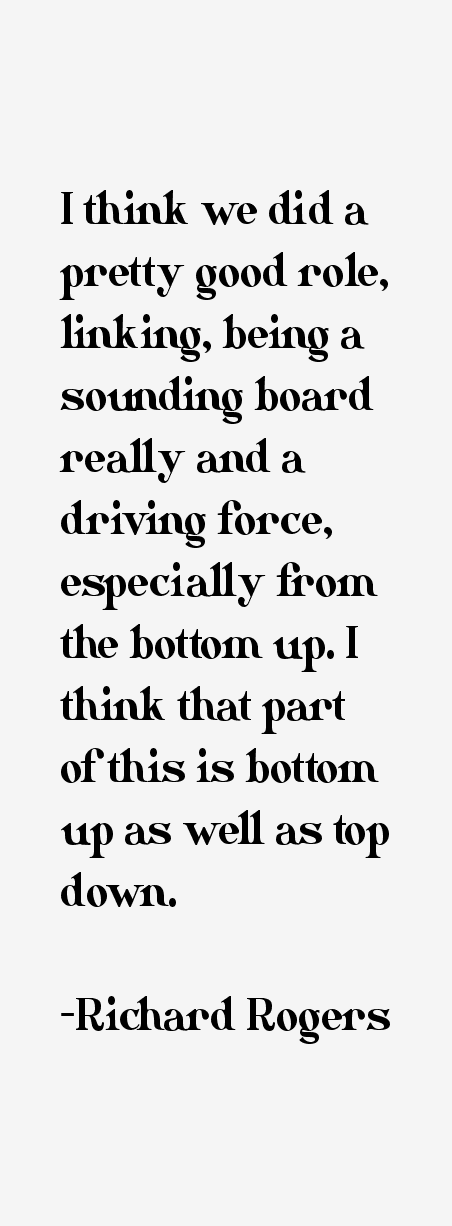
“I think we did a pretty good role, linking, being a sounding board really and a driving force, especially from the bottom up. I think that part of this is bottom up as well as top down.”
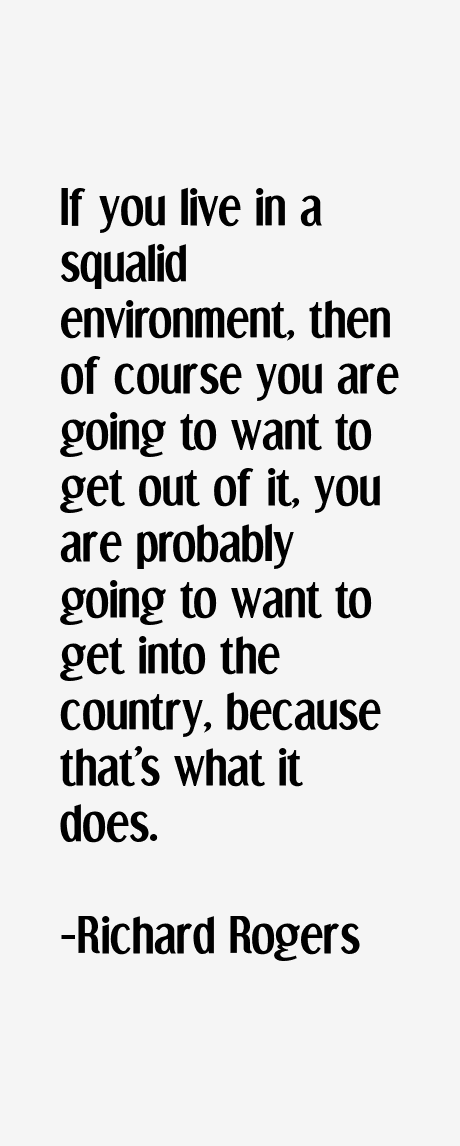
“If you live in a squalid environment, then of course you are going to want to get out of it, you are probably going to want to get into the country, because that's what it does.”
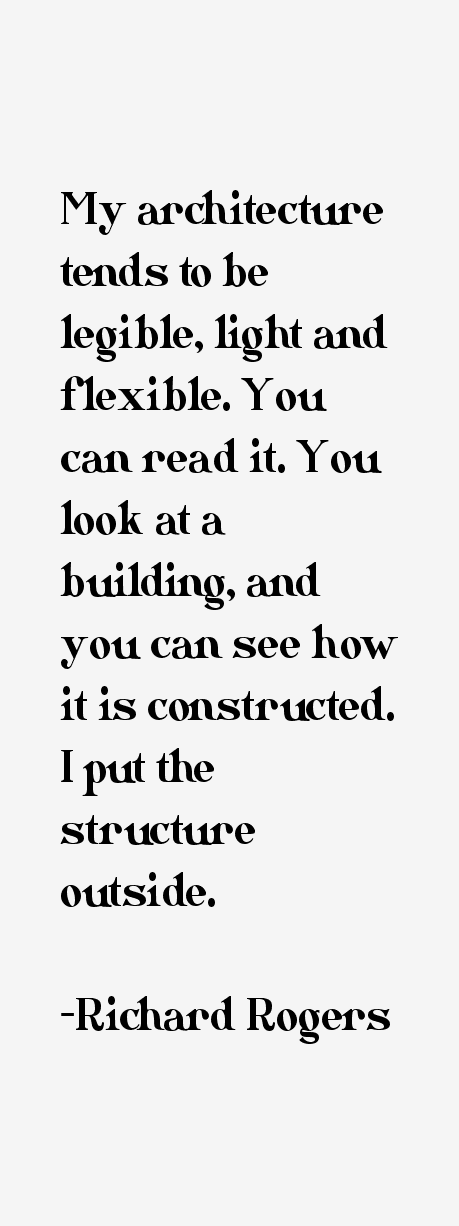
“My architecture tends to be legible, light and flexible. You can read it. You look at a building, and you can see how it is constructed. I put the structure outside.”
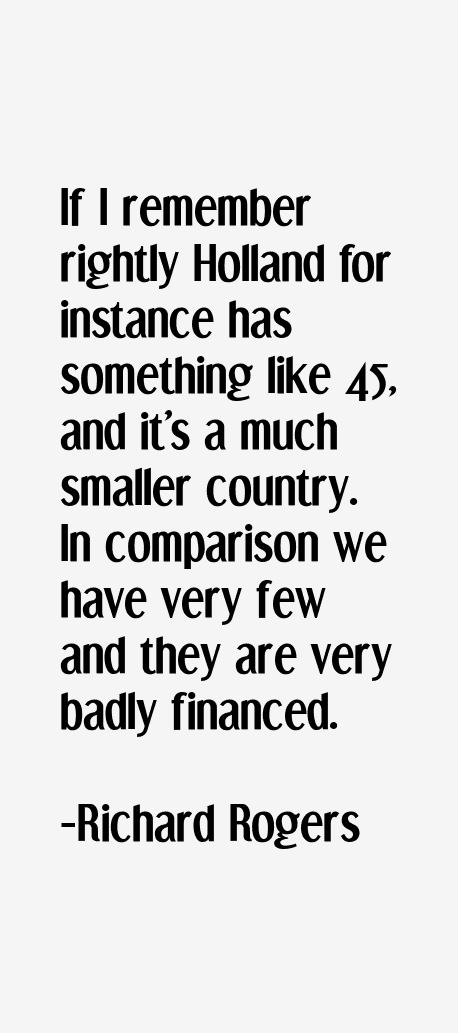
“If I remember rightly Holland for instance has something like 45, and it's a much smaller country. In comparison we have very few and they are very badly financed.”
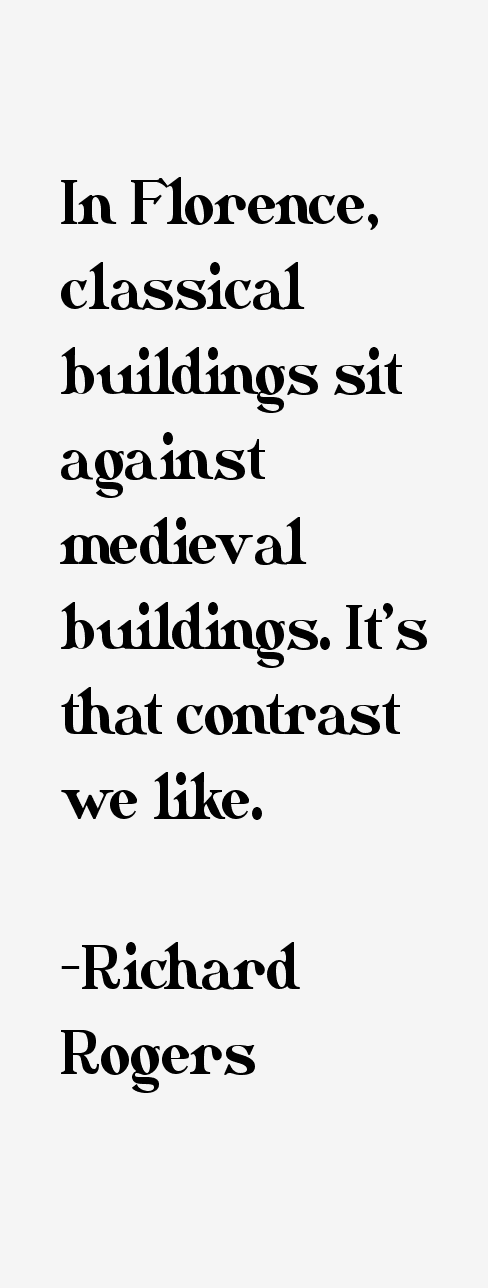
“In Florence, classical buildings sit against medieval buildings. It's that contrast we like.”
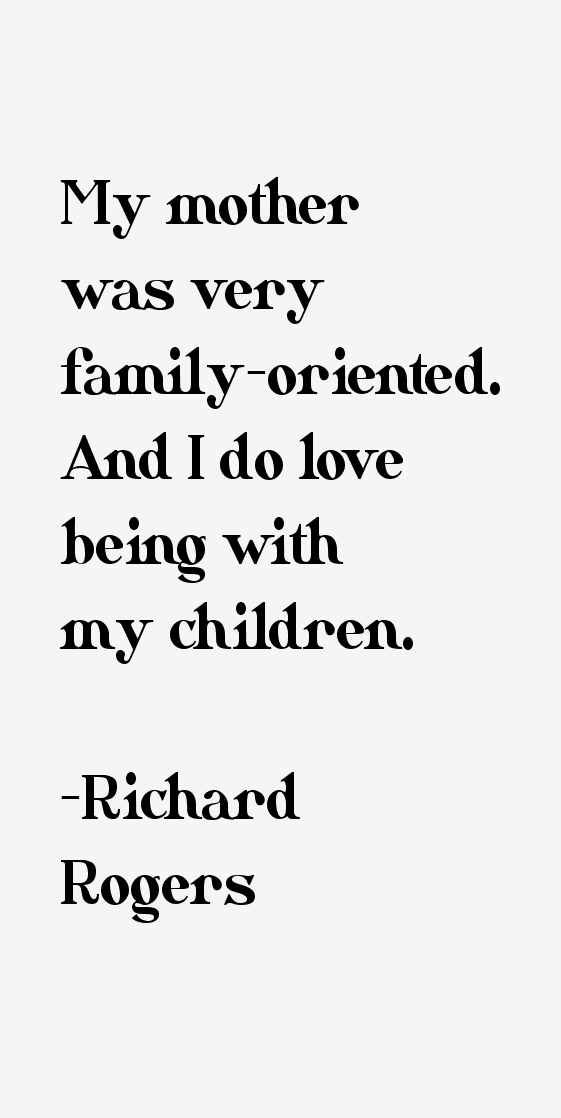
“My mother was very family-oriented. And I do love being with my children.”
“When I started out, nearly every architect I knew was working in public practice; that's where the radical thinking was done. But, there's always a danger of looking back as our fathers did and saying, 'Things were better then.'”
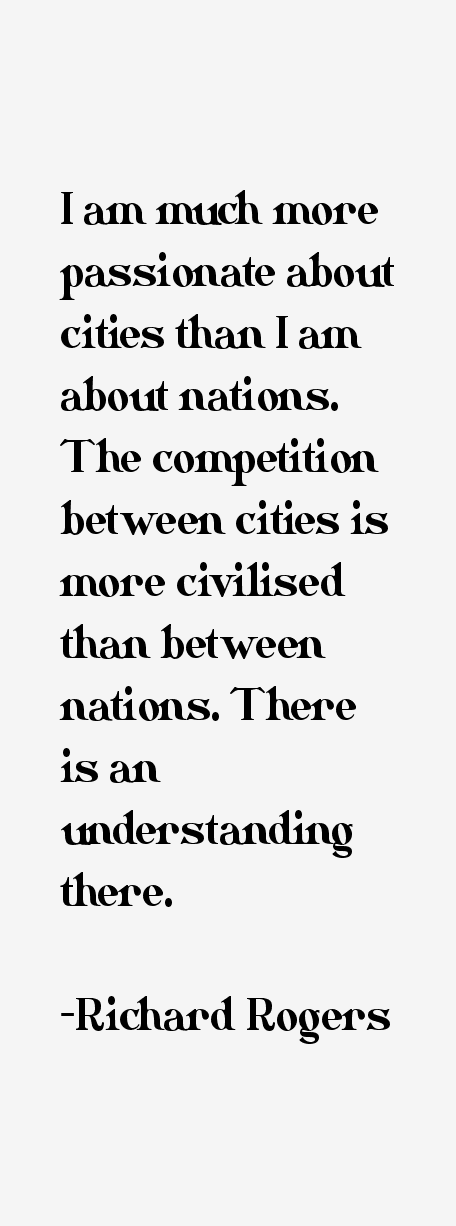
“I am much more passionate about cities than I am about nations. The competition between cities is more civilised than between nations. There is an understanding there.”
Richard Rogers Quotes Rating
No Ratings Yet
Leave A Comment
























